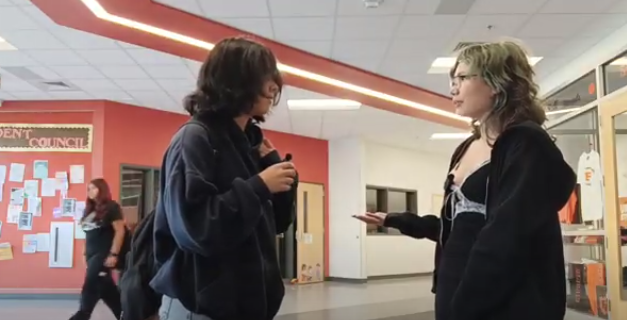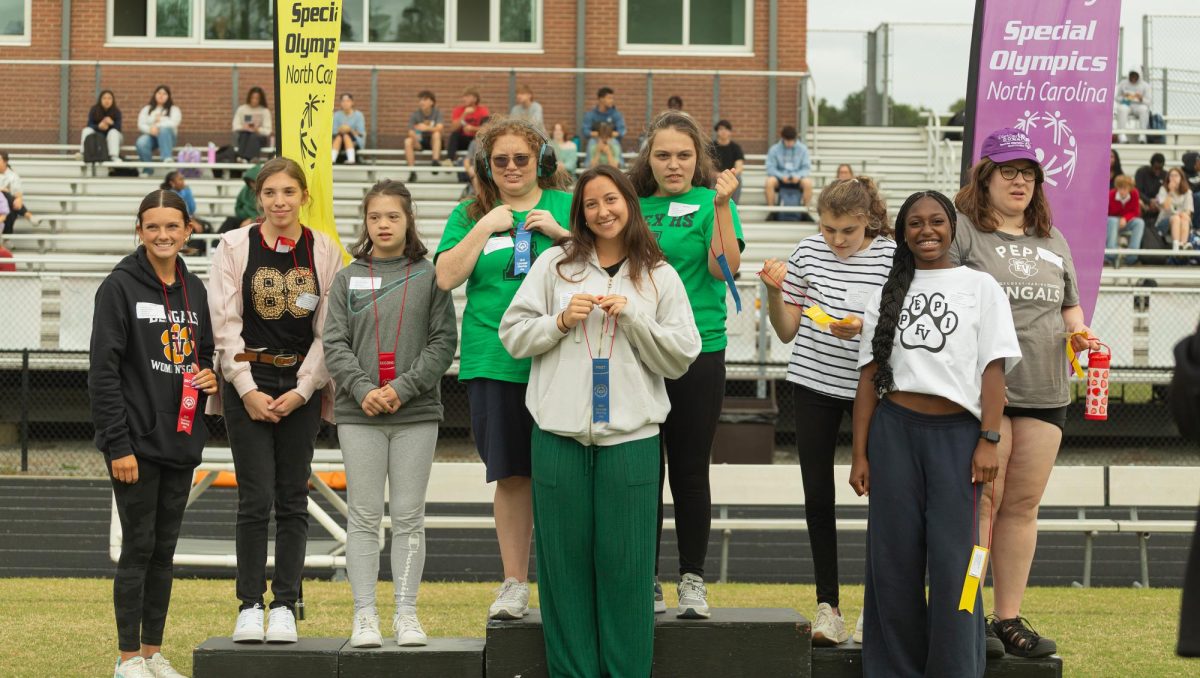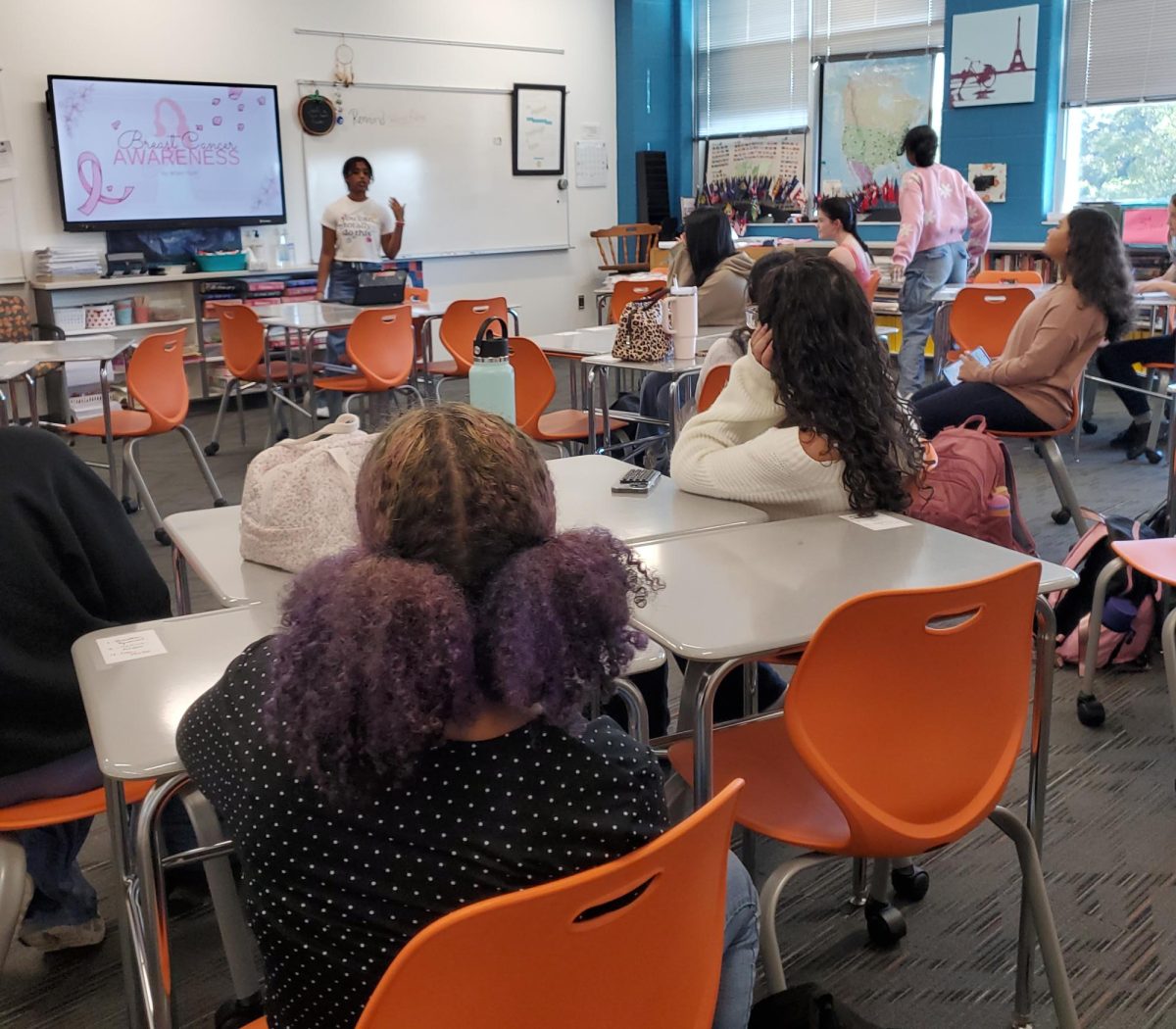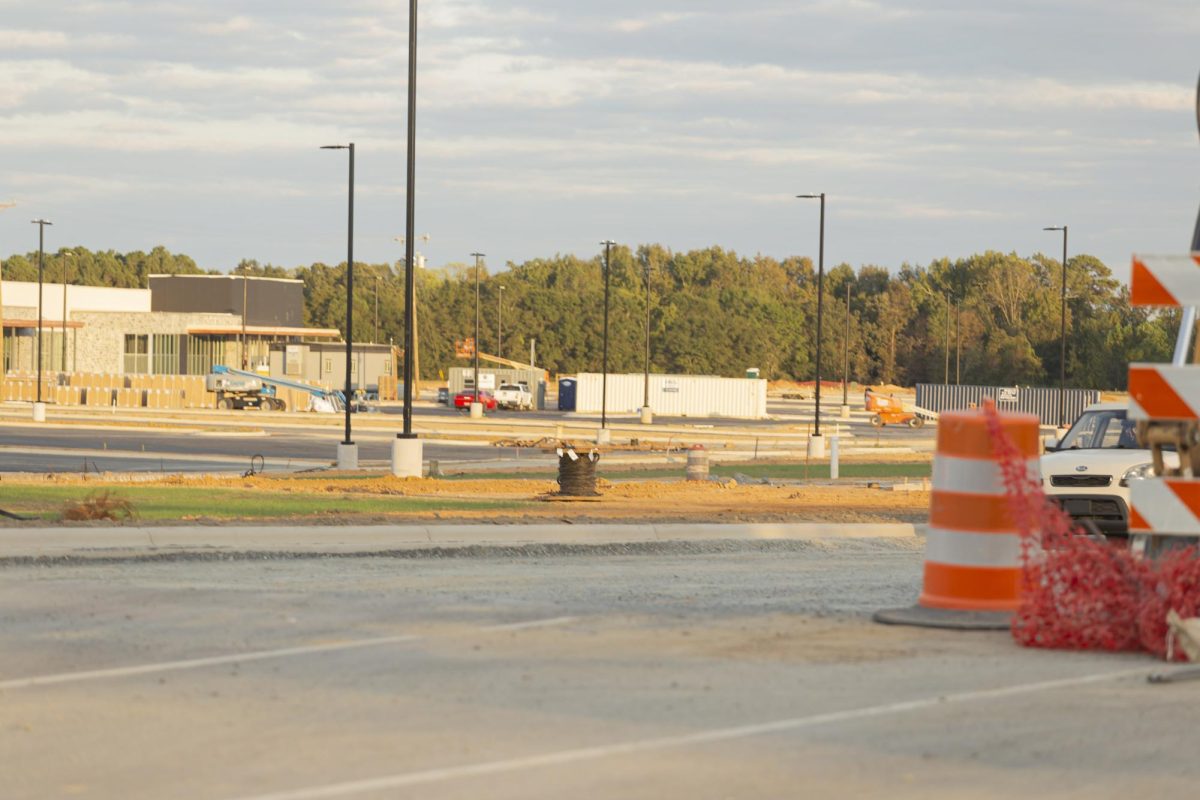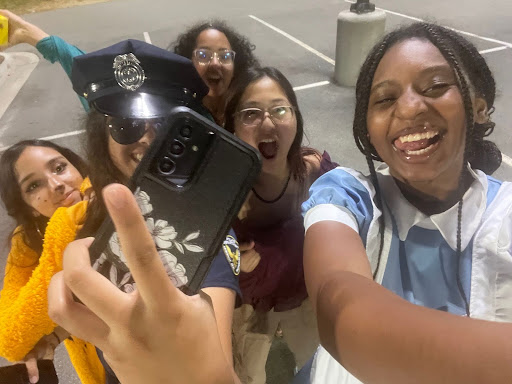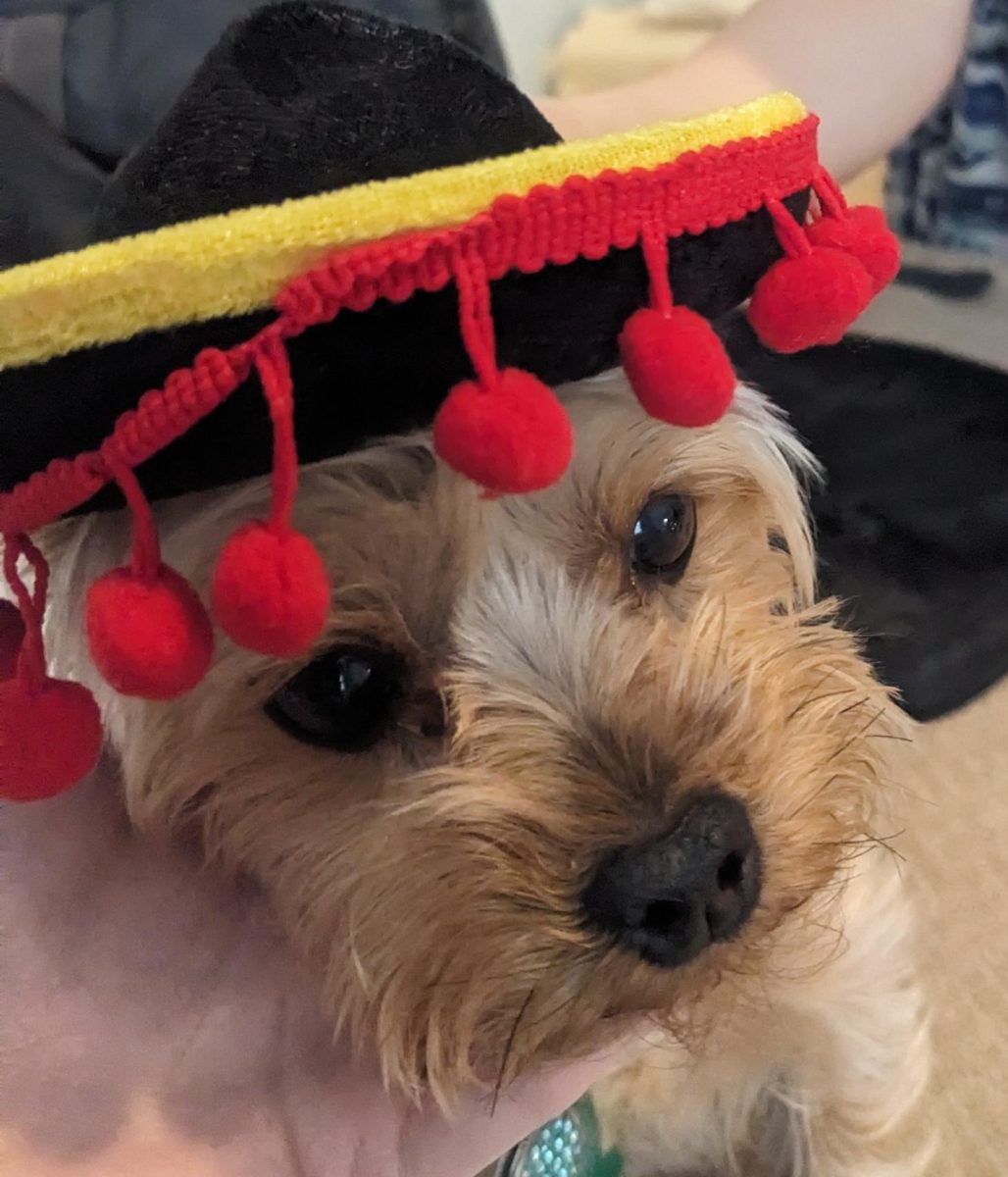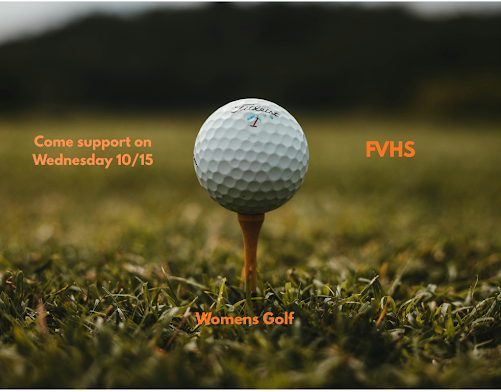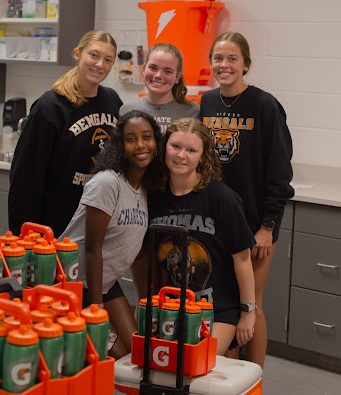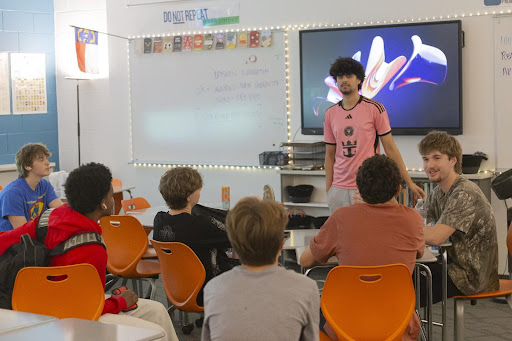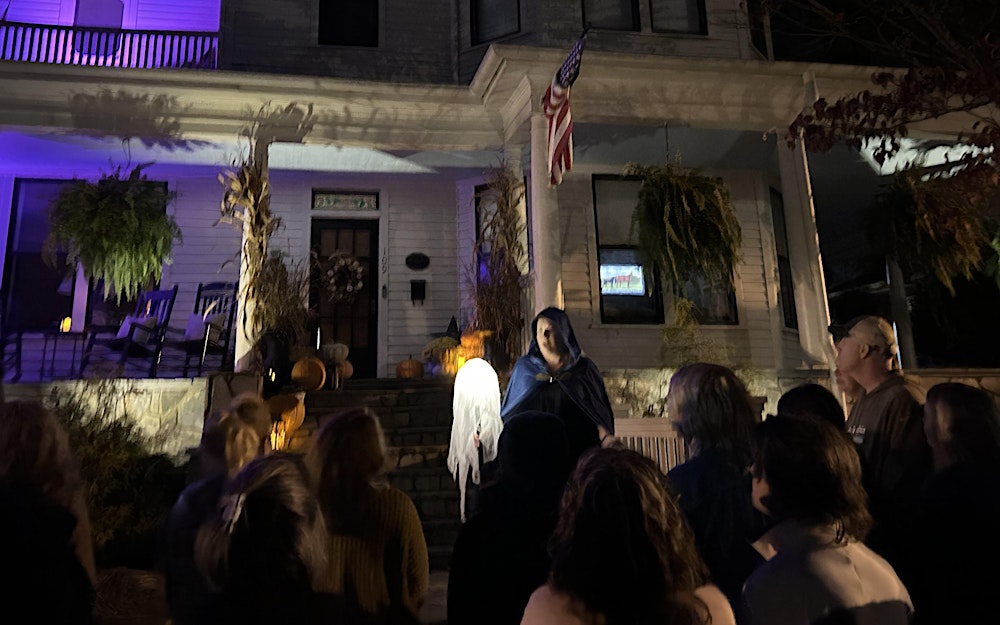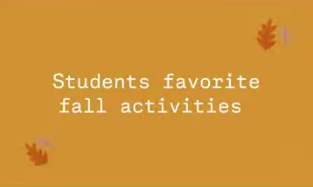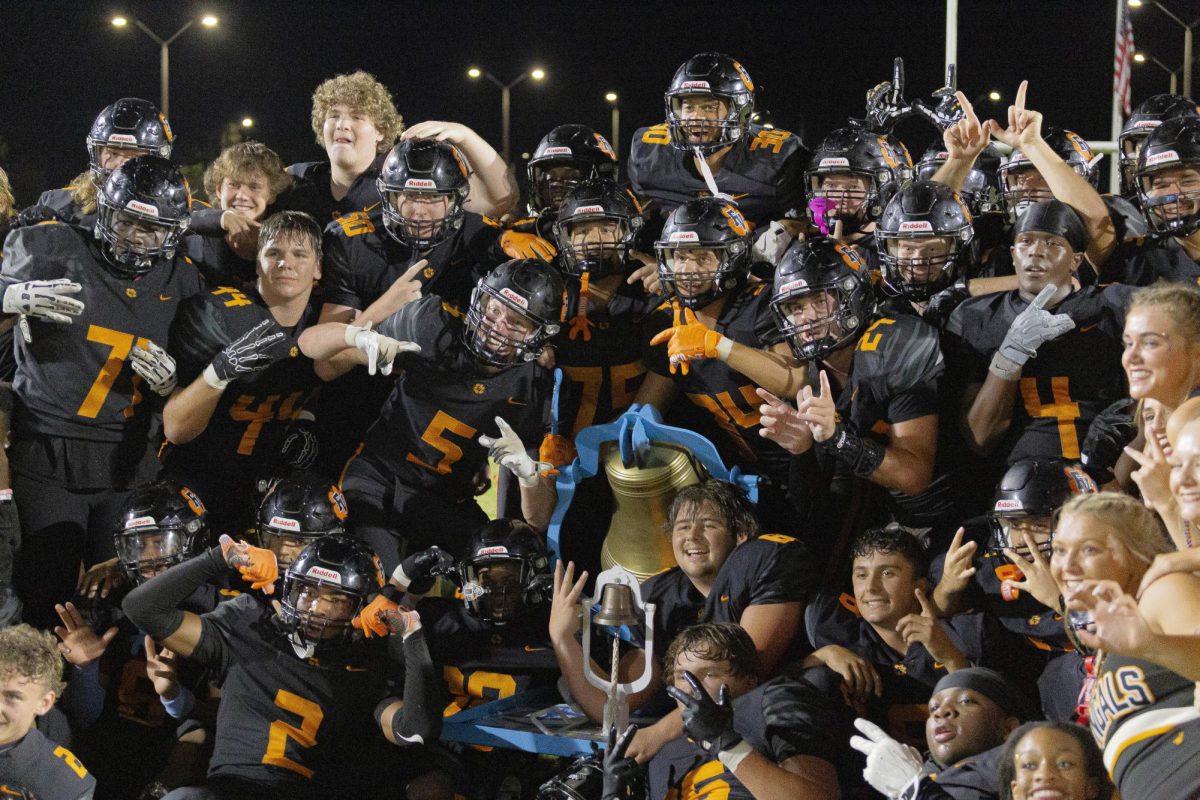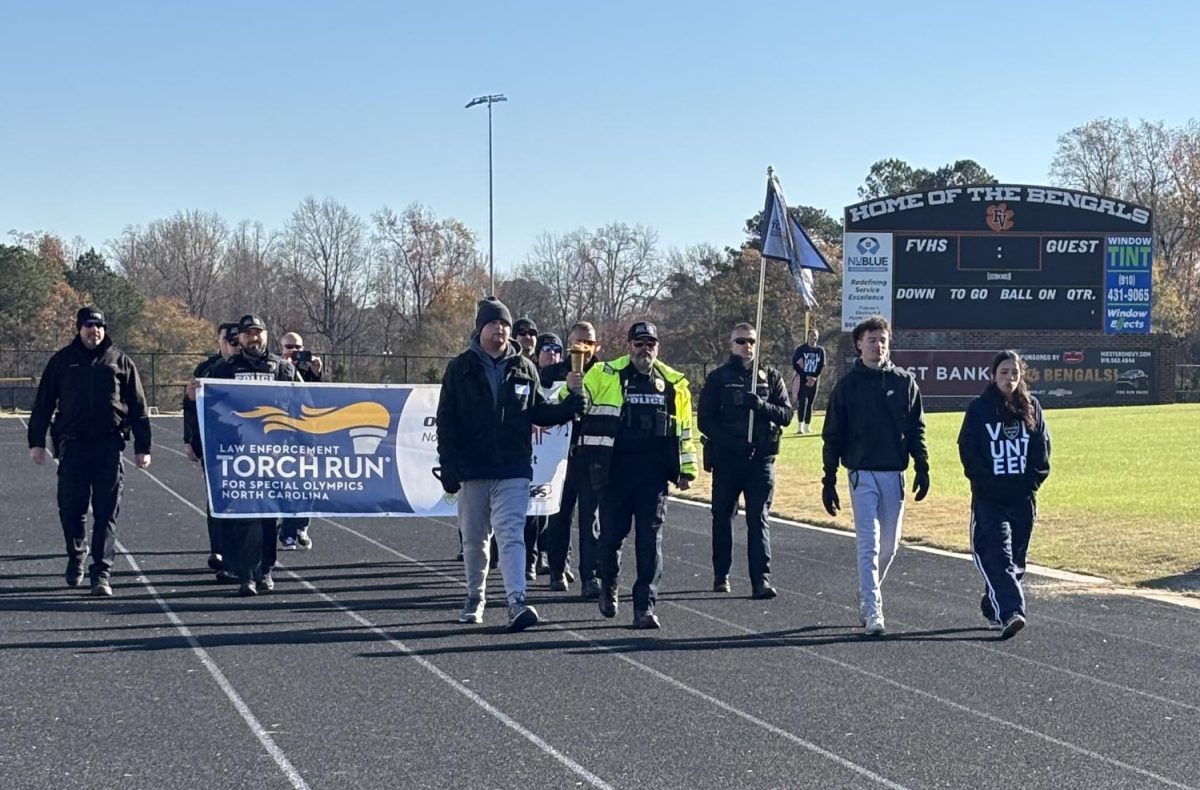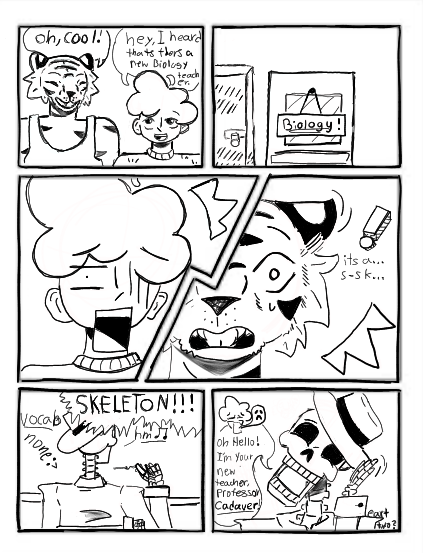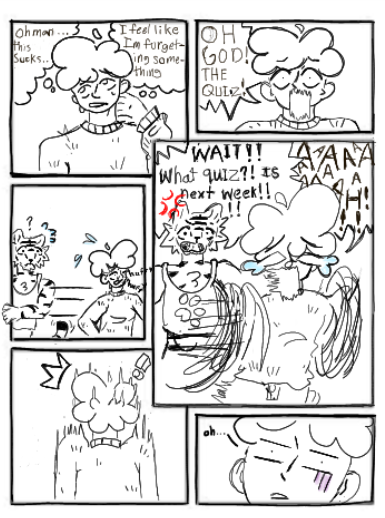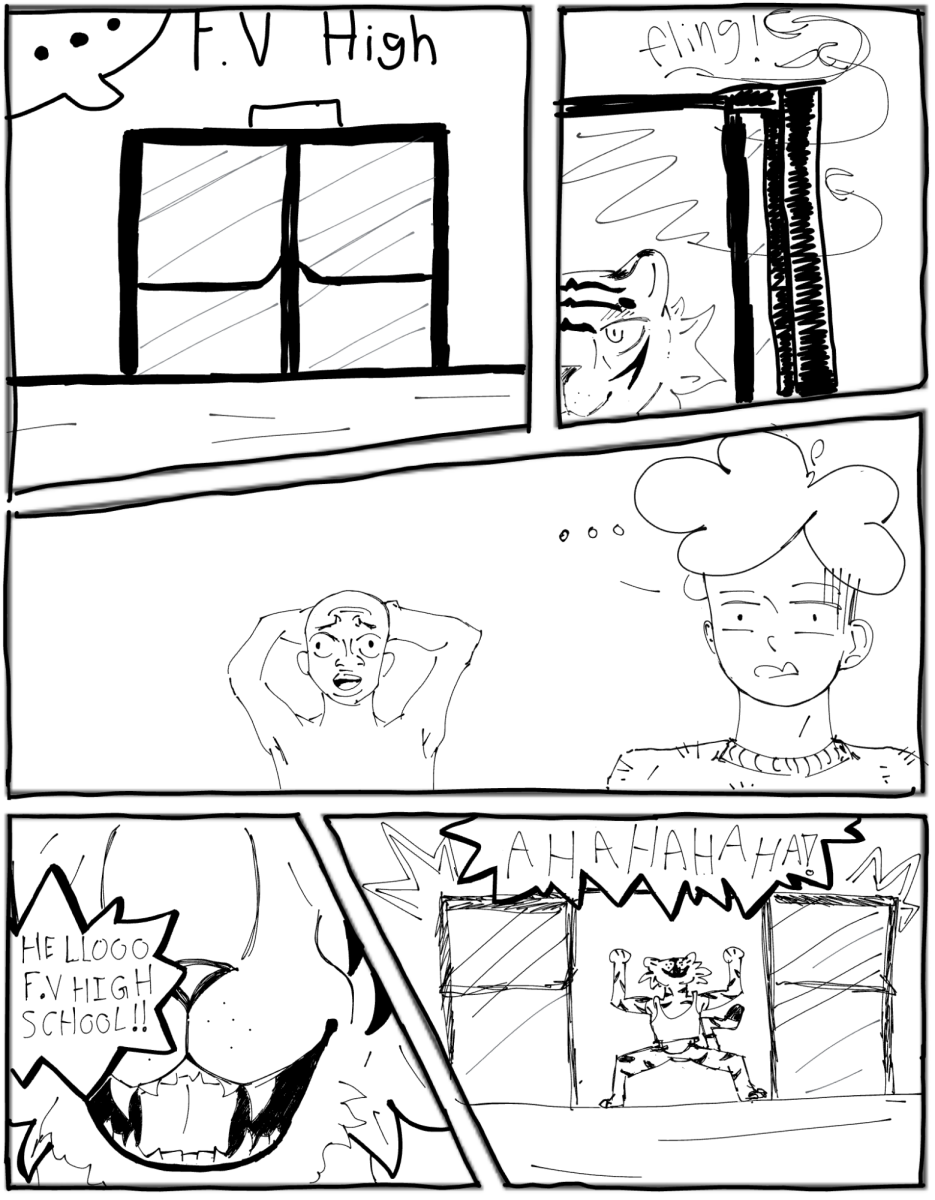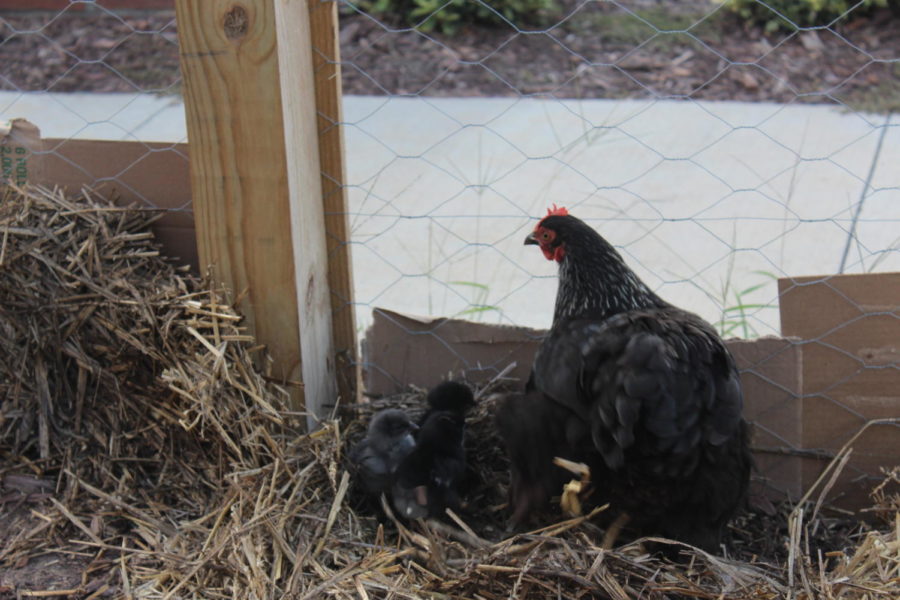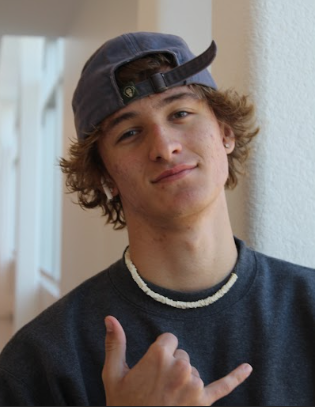Chickens raised on campus
October 13, 2022
When do you think of a farm what comes to mind? Is it the moos of cows grazing on wide-open pastures or the squeals of pigs frolicking in the mud? Perhaps, it’s the sound of chickens clucking away in a small pen enclosure; pecking away at who knows what, and walking with absolutely zero flairs, with that weird little bobbing stride.
However, not all chickens are destined for the farm, as is the case for the five that are kept here, at Fuquay-Varina High School in the school’s greenhouse for the agriculture class.
Two of the chickens, Elsa and Olaf, are fully grown and have been here for about two years.
“They were given to me by a lady moving out of her farm and she couldn’t keep chickens anymore,” remembered agriculture teacher Catherine Moore. The other three chicks were born on Sept. 21. The names of the chicks were decided, by vote, to be Alvin, Simon, and Theodore.
Elsa is a Cochin chicken, while Olaf is a Top Hat chicken. Olaf is distinctly black with a little white “top hat” of feathers, which is where the breed’s name comes from.
“Everybody thinks that Olaf is a rooster but she’s not,” Moore continued, “They’re both girls.” As for the chicks, their genders won’t be able to be determined for a while.
Elsa is the mother, but as previously mentioned, both of the chickens are female. Therefore any eggs they lay aren’t fertilized. In order to raise baby chicks, the solution was simple.
“I got different eggs for her to hatch, so technically they’re not really her babies, but she doesn’t know that,” Moore elaborated. An interesting result of this kind of adoption is that the babies will actually grow to be bigger than the mother. Elsa is a Bantam hen, which means that her maximum size is smaller than that of a typical fowl. The babies will grow to be regular-sized chickens.
You might be wondering what happens to the eggs laid by the hens here, but unfortunately, the answer is disappointing. The eggs are disposed of as required by Wake County. This is to avoid legal trouble as a result of someone eating one of the eggs and getting sick.
Although it’s too early to tell for the chicks, Moore noted that the adult hens have a calm demeanor.
“They were raised from the egg, so they are very friendly,” said Moore. This bodes particularly well since interaction in order to clean the coop and feed them is a daily occurrence.
Although not a farm, these chickens do have a comforting, loving place to call home, here at FVHS. They have a clean coop to live in, plenty of water to drink, and steady grain to eat. The fact that students have the opportunity to care for a living thing, to watch it grow, and to learn about it, is fundamentally something to be grateful for.

